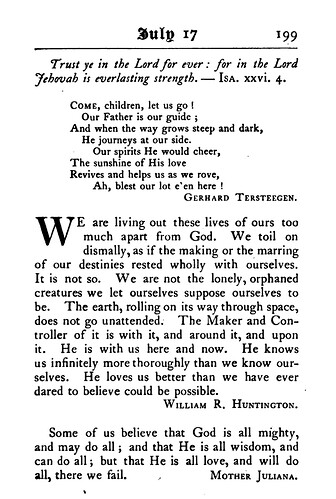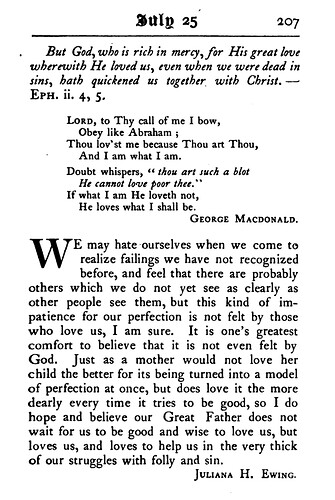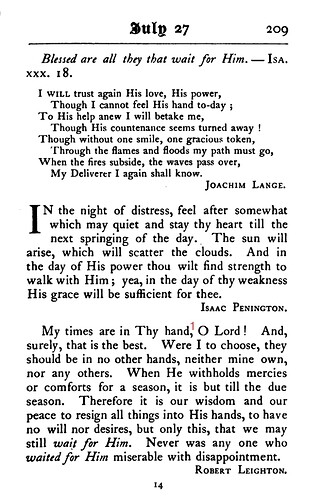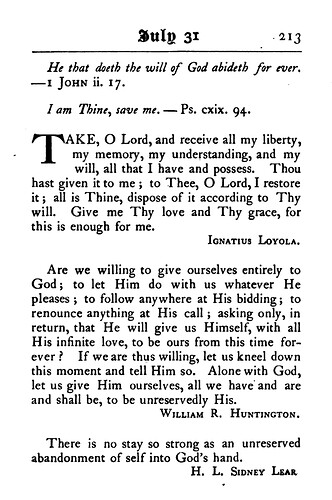Not putting it forward as any great recommendation, but I do remember enjoying the story by Asimov titled “The Feeling of Power” which was a futuristic story set in an era when machines did all computations and humans had forgotten how. It has an interesting plot twist, even if it all would be considered quaint and ‘clunky’ by today’s writer and plot standards.
As is true of all good fiction, including science fiction, it is at heart a critique of society and our values.
I wonder if that’s the one my dad always used to quote when we struggled with math! He told of a story where everyone forgot how to add, subtract, divide and multiply, and we relied on calculators all the time (which went kaput)!
I’ll have to look that one up. I’ve been trying to use that for my kids, and not knowing the origin, my persuasiveness has been muted.
![]() Thanks!
Thanks!
I like this observation. Thanks!
I’m trying to remember the parts I loved of the short stories. “Veld” reminds me of the plains in West Africa where I grew up, though it was probably drier where I lived. The exultation of walking in the cool morning, and Lessing’s taut, concise descriptions, evoked just enough of the colors and openness to stimulate my imagination. The moral comes that not only are we not as strong as we think we are, but if we are not careful, we are just as horrible as the pitiless, dangerous nature around us. One phrase, as he leapt on the floor and exited the house, “And it was cold, cold…” is onomatopoeic, reminding me of how a boy reacts to putting bare feet on the cold ground, or in a cold pool, gathering his thoughts around him to protect himself. Here is a short description, but I can’t find a copy for free, unfortunately.
In “Shaving,” a boy, at the head of his football team, realizes that the praise of his friends matters not at all compared with comforting his weak, dying father by shaving him. The pitiful contrast of the strong, young man, caring for a loving father who can not even shave himself, by cradling his head under his arm, evokes a desire to look for what is most important in life.
I learned that Leslie Norris mostly wrote poetry. The entire short story is here
Barry cradled his father’s head in the crook of his left arm, so that the man could tilt back his
head, exposing the throat. He brushed fresh lather under the chin and into the hollows alongside the
stretched tendons. His father’s throat was fleshless and vulnerable, his head was a hard weight on the
boy’s arm. Barry was filled with unreasoning protective love. He lifted the razor and began to shave.
“You don’t have to worry,” he said. “Not at all. Not about anything.”
He held his father in the bend of his strong arm and they looked at each other. Their heads were
very close.
“How old are you?” his father said.
“Seventeen,” Barry said. “Near enough seventeen.”
“You’re young,” his father said, “to have this happen.”
“Not too young,” Barry said. “I’m bigger than most men.”
“I think you are,” his father said.
I hope you can enjoy these stories sometime–especially the last one.
Randy, how about a little Poe? In our time, I think “The Ballon Hoax” and “The unparallelled Adventure of Hans Pfall” are appropriate.
“I read/saw/heard it in my favorite newspaper/on my favorite news site/from a very reliable source.” It must be true.
What happens when I can’t sleep … for better or worse, you are subjected to my attempts at a poem that I’ll self-publish here. Consider this a rough draft, shared here first. Honest feedback and suggestions welcomed.
The Hapless Herald (or alternate title: “So, how’s that workin out for ya?”)
The pious noticed drums and beat and staunchly disapproved.
Let the devil have the music – we don’t join that groove.
And so he took it, yes he did; and much was made for him.
“Remind me how that werked fer y’all?” our herald later mused.
The pious read all ‘bout the world, and marshaled chapter and verse.
We see the devil in this place, this ain’t our universe.
And so he took it, yes he did; his playground it became.
Years gone we hear “how’s that werked out?” - the question’s still the same.
The pious felt the tug of flesh; desires to be sated.
The devil must be in that too, already desecrated.
And so he took it, yes he did; and we just let him be.
We age and ache and dimly hear: “how’d that work out fer ye?”
The pious heard all ‘bout the mind; and perils of education.
Science! It’s the devil’s too – We’re Jerusalem. Not Athens!
The hapless herald disturbs our slumber; prods us still again,
and to our corner the echo comes; as he repeats the question.
Then the pious man was asked, “Now what about yer soul?”
He looked. And looked again.
I know I got it somewhere!
Just gimme a moment – I’ll find it – yes – and afterwards I’ll answer.
And the moment became eternity.
-Merv Bitikofer 2023
Merv,
I find it incredibly gutsy when anyone is willing to put their creative writing out in public, that is, to publish it.
Bravo!
I like the way you are handling the subject.
One of my favorite “The Hobbit” quotes…my family and I were just chuckling over it tonight
Good Morning!" said Bilbo, and he meant it. The sun was shining, and the grass was very green. But Gandalf looked at him from under long bushy eyebrows that stuck out further than the brim of his shady hat.
“What do you mean?” he said. “Do you wish me a good morning, or mean that it is a good morning whether I want it or not; or that you feel good this morning; or that it is a morning to be good on?”
“All of them at once,” said Bilbo. "And a very fine morning for a pipe of tobacco out of doors, into the bargain.
…
“Good morning!” he said at last. “We don’t want any adventures here, thank you! You might try over The Hill or across The Water.” By this he meant that the conversation was at an end.
“What a lot of things you do use Good morning for!” said Gandalf. "Now you mean that you want to get rid of me, and that it won’t be good till I move off.
J.R.R. Tolkien, The Hobbit (The Lord of the Rings, #0)
Tags: bilbo-baggins, conversation, gandalf, good-morning, languange, meaning
I expect I’ll hear a lot more of them now. ![]()
“…and to think that I should have lived to be good morninged by (Belladonna?) Took’s grandson!”
Fun!
Love the tags!
“Good morning!” sounds sometimes like how we say “Good night!” In astonisment.
Oh, that’s an essential part to the exchange! Thank you! ![]()
"[Hatred] is the compensation by which a frightened man reimburses himself for the miseries of fear. "-C S Lewis in “Screwtape.”
This seems the contrast to Paul, in which “perfect love casts out fear.” It’s a hard thing to replace fear with love.
I enjoyed the somewhat humorous song, “Hard,” by Rich Mullins–about how it’s hard to look at people the way we should.
Well I am a good Midwestern boy
I give an honest day’s work if I can get it
I don’t cheat on my taxes, I don’t cheat on my girl,
I’ve got values that would make the White House jealous
Well, I do get a little much over-impressed,
'Til I think of Peter and Paul and the apostles
I don’t stack up too well against them I guess,
But by the standards 'round here I ain’t doing that awful
Lord, it’s hard to turn the other cheek
Hard to bless when others curse you
Oh Lord, it’s hard to be a man of peace
Lord, it’s hard ~ oh it’s hard
You know it’s hard to be like Jesus
Don’t you know it’s hard ~ oh it’s hard
Oh Lord, it’s hard to be like Jesus
And it’s hard to step out on them waves
Hard to walk beyond your vision
Oh Lord it’s hard to be a man of faith
Lord it’s hard (hard) Lord it’s hard (so hard)
Oh Lord it’s hard to be like Jesus
Don’t you know it’s hard (hard) oh it’s hard (yeah hard)
Oh Lord it’s hard to be like Jesus
Well His eye’s on the sparrow
And the lilies of the field I’ve heard
And He will watch over you and He will watch over me
So we can dress like flowers and eat like birds
And it’s hard when your soul had been stripped bare
Hard to lift your eyes toward Heaven
Oh Lord it’s hard to be a man of prayer
Lord it’s hard ~ oh it’s hard
You know it’s hard to be like Jesus
Lord it’s hard to be a man of peace
But it’s hard (so hard) ~ ain’t it hard (hard)
You know it’s hard to be like Jesus
Don’t you know it’s hard (hard) and it’s hard (yeah hard)
To be a man of peace (hard so hard)
But it’s hard to be like Jesus
And I’m trying, trying, try
Oh Lord I try so hard
Don’t you know it’s hard
Oh glory oh gracious
But ain’t it hard to be like Jesus
Songwriters: Richard Mullins. For non-commercial use only.
Except it’s not our perfect love but our Father’s which has that effect, once we learn to trust it and trust in him.
- From Sean A. Cosby’s murder mystery: “All The Sinners Bleed” [2023]:
- “Structure became his religion. Discipline was his crucifix against chaos.”
Randy, I need to look this song up on YouTube and listen. I only know Rich Mullins’s name, not his music.
This part grabbed me (as if the rest of the lyrics didn’t):
Hard to walk beyond your vision. Yeah.
Part of what I am liking reading Kierkegaard (very slowly and irratically) is that he gets this, and the anxiety that goes with feeling like one isn’t doing “what one can.”
You might enjoy this reading of a sermon called Ultimatum from the end of *Either/Or.” I found it by accident, looking for something else about SK.
It addresses the frustration of always feeling like one is not doing enough to please God and how we can be free of that doubt. It’s an interesting piece.
Thanks for the song.



